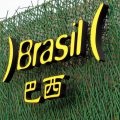China may kill North Korea, but may not control the outcomes of the death. The country’s lifeline passes through its northern border: Beijing holds 80% of Pyonyang’s trade and supply, which in most cases are food and energy for survival. In addition, or as an alternative, China could stop its political protection, an umbrella in the international arena. Finally, it could cease its military partnership or friendship. No country would protest a similar decision. Many powerful countries would like to see this approach. But what would be the advantage for China? The answer is unpredictable, complicated, and dangerous. This is the reason why China is very prudent: to release its grip on North Korea might mean an inducement to instability, something Beijing fears the most. Pragmatism is China’s polar star. Thus, a sudden change in the Korean regime might prove detrimental to its interests.
The two countries have ideologically little in common. Even if they are both officially communist, they chose different paths and models. The results testify the diversity in terms of economic achievements, international recognition, and conditions of living. Gone are the times of perennial friendship, when the two countries were “like tongue and teeth”. Only few veterans remember the millions of Chinese volunteers during the Korean War, the death of Mao’s son, and the Red Army lead by Lin Biao.
China did not dismantle its links with North Korea, but at the same time built strong relationship with the South. Trade, investment exchange flourished over the last years. Politically, tension is non-existent or well hidden, since mutual advantages prevailed on both sides. If Pyongyang’s regime collapses, this “unbalanced balance” will be at risk. Millions of refugees will flock in the country, exhausted and weak. Facing this humanitarian crisis, Beijing should handle an unrequested emergency. North Korea can count on a powerful army and nobody knows exactly how equipped it is. Moreover, it is mysterious how decisions are taken within the inner circle of the Kim family. The appointment of Kim Jong-un was a surprise for many Korea watchers. His name means continuity and possibly stability, at least for some times. For Beijing, it is wise to avoid any tension it should not be able to control. Status quo is better than danger.
The political results might be even more unpredictable. A collapse in the north might lead the way to reunification, but the scenario is very uncertain. The “German option” comes immediately to mind, as an example of relatively easy unification process. But in the European country the partition was shorter and no war was fought. In addition, a unified Korea will be a strong economic competitor to China. Finally, the US troops stationed in the South might be transferred to the northern border of a possibly unified country: a nightmare for Beijing.
In conclusion, China should be happy not to handle this difficult situation, but history gave it this task. It is better to avoid confrontations and risks, buying time and make the best out of this tutelage, in the name of its national interests.

EconomicsInternational Politics & Relations
Buying Time From North Korea
Alberto Forchielli22 Gennaio 20120


















Lascia un commento